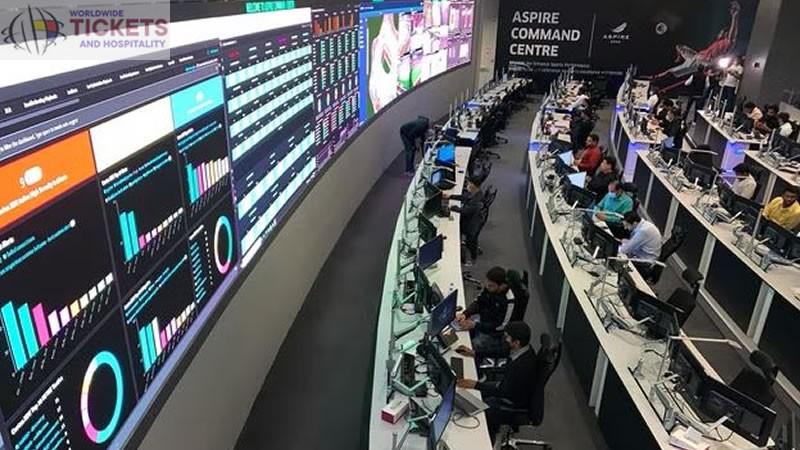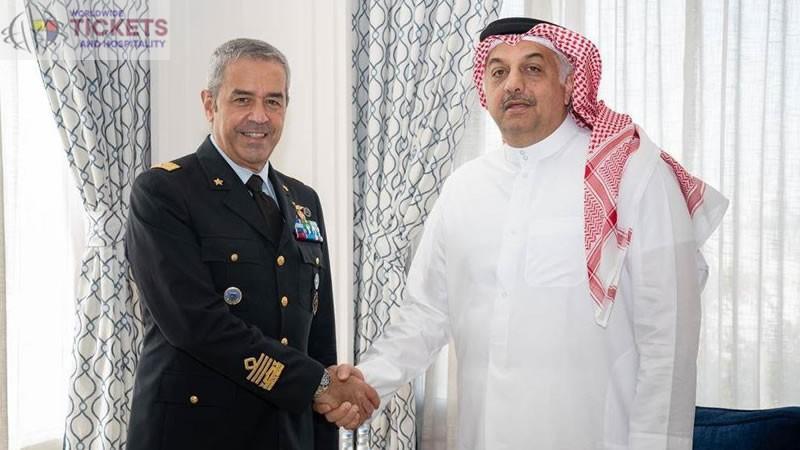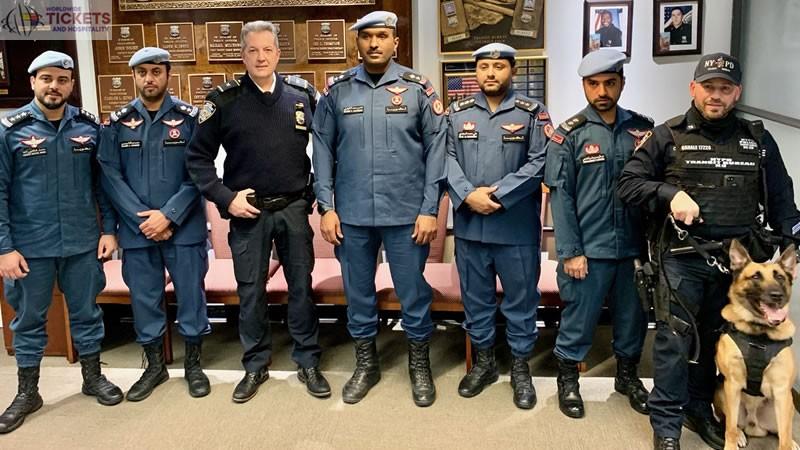Qatar Spending Emphasizes on Football World Cup Security Cyber Threats
Ahead of the first Football World Cup in the Middle East, Qatar is spending billions not only to retain physical threats at bay but also to avoid cyber security breaches during the Qatar World Cup almost one month to maintain peace, which battings from Nov. 20 to Dec. 18. The risk of cyber-attacks rises during mega sporting events such as the FIFA World Cup.
Football World Cup 2022 fans from all over the world can book Football World Cup tickets from our online platforms WorldWideTicketsandHospitality.com. Football fans can book Qatar vs Senegal Tickets on our website at exclusively discounted prices.
Cyber security professionals predict that hackers could target institutional facilities such as ticketing and hotel bookings, as well as personalities travelling to Qatar for World Cup. Phishing and social engineering could be used to give away personal or financial information from anyone using the internet, exclusively on public Wi-Fi at the stadiums. While fans may be the calmest targets, businesses and even the event’s consolidating committee may be subjected to more cultured attacks.
The Qatari hosts have participated in $1.1 billion in cyber security to prevent occurrences during the Qatar Football World Cup and beyond, according to Tasmu Digital Valley, a program established by the Qatari government to augment digital systems in the country. In addition, Qatar signed a joint covenant with Morocco last to have the country position a team of cyber security experts to the host country ahead of the Qatar World Cup.
The Qataris have been intensive care-specific threats from within the Arab world. With the exemption of their closest neighbour, Saudi Arabia, the Qataris are on good terms with governments in the province, including Iran, as well as non-state actors such as Al Qaeda, Hezbollah and Hamas, bestowing to Andreas Kreig, a senior lecturer at the School of Security Lessons at Kings College in London.

But beneath the threshold of war, there’s a lot of intent there to the representative to surrogates and delegations in the cyber domain, Kreig said. Officials from Qatar’s Supreme Commission for Delivery and Legacy, the government body running Football World Cup preparations, declined to comment for this article. But Qatar’s sports engineering has apportioned with hacking before.
According to a WTO explosion from 2020, Saudi Arabia set up and supported a pirate streaming service called beoutQ and disseminated dozens of sports broadcasts from Qatar’s beIN Sports without the company’s consensus. The organization administrated that Saudi Arabia helped breach international piracy laws in next of kin to beoutQ, despite the country contending there is no link between its government and the supposed piracy.
Saudi Arabia removed all swashbuckler websites when up-to-date of them but never accepted blame. Cyber-attacks like this, Kreig said, are considered to bring international ridicule to the country. It’s about trying to show the world all the countries can’t essentially host a massive event like this. And I think that’s doubtless where the greatest vulnerability lies.
For the Football World Cup, Qatari officials are not departure any room for error. On March 25, Interpol congregated a group of global cyber security connoisseurs together in Doha to analyse threats ahead of the FIFA World Cup. The meeting was part of Project Stadia, reputable by Interpol in 2012 and funded by Qatar, which aims to subsidize security arrangements for any major sports occurrence but with special importance on the Qatar World Cup.
We’ve seen other occurrences in the past with other countries, not necessarily during the Football World Cup, he said, but of course, having that mortification live on TV is 10 times more worth it from a hacker’s perspective. Al-Kayed’s team is not working unswervingly with Qatar’s Supreme Committee, but it has been hired to back a handful of contractors, from food service stations to technology.
It is part of the deal; every contractor that works for the Qatari government for this association has to have its cyber security, Al-Kayed said. Qatar has also disbursed billions of dollars to secure the country from physical terrorisation well beyond the 30-day tournament. NATO will also offer security during the event

The Qataris have out of danger no expense, Tim Bean, the CEO of Fortem Technologies, told Sportico. The Utah-based company dedicate itself to airspace security and has thriving U.S. Army bases, Davos and G7 summits, and a mega sports event that took place in Japan freshly. Forum is one of the many companies with which Qatar has amalgamated to provide security during the Qatar Football World Cup.
Turkey is sending 3,250 riot police to assist Qatari police on the streets. The United Kingdom has transmitted Typhoon military aircraft, while France is sending four airborne cautioning and control systems to track airborne threats. Earlier this year, the Qatari navy engaged in a new contract with Italian firm Leonardo to develop a Naval Operation Center for the military service, the first of its kind in the country.

South Korea is provided counter-terrorism officers, and in August, Pakistan’s cabinet permitted a draft agreement that allows the government to arrange for troops for Football World Cup security. This is doubtless the most secure and secured FIFA World Cup in history, Kreig said. And that’s by the nature of where it is geologically. Qatar is a headland that has two entry points: the airport and its land boundary with Saudi Arabia.
In the assessment of any other country that ever hosted the Qatar World Cup, Qatar has the best boundary security and observation capability. But even with the abundance of security, mega sports events are prone to occurrences, no matter how qualified the host country is. In 2021, thousands of ticketless fans enforced their way into Wembley Stadium throughout the UEFA European Championship final in London; in 2022, thousands of Liverpool fans were jammed outside Stade de France at the UEFA Champions League final in Paris.
We have also realised at the Saudi Arabian F1 Grand Prix this year, how wider geopolitical skirmishes can directly impression sports events, Simon Chadwick, instructor of Sport and Geopolitical Economy at Skema Business School in Paris, communicated Sportico. Last March, Yemen’s Houthi rebels condemned an oil depot in Jeddah, a few miles not here from where the Grand Prix was being held.
Chadwick said the commotion caused by security ruptures can have an economic impact as well as on the image and the standing of the host country. The latter is specifically important for Qatar, which has spent unrestrainedly the last three decades making itself a tourism and sports last stop, an ambition that would undoubtedly suffer if the Football World Cup watchers superficial it to be an unsafe country.



